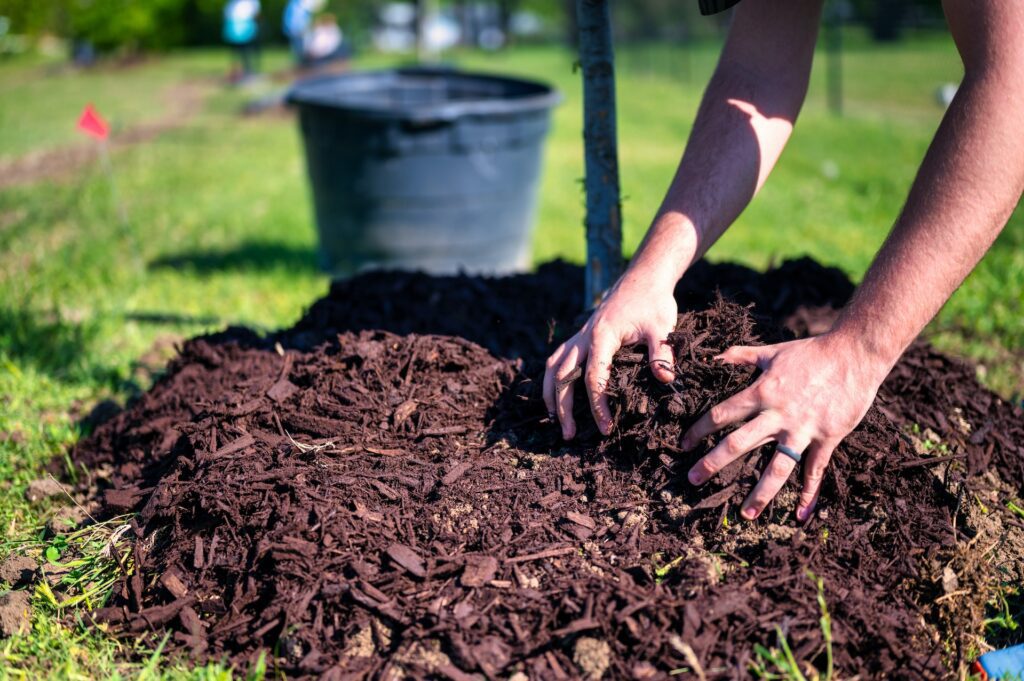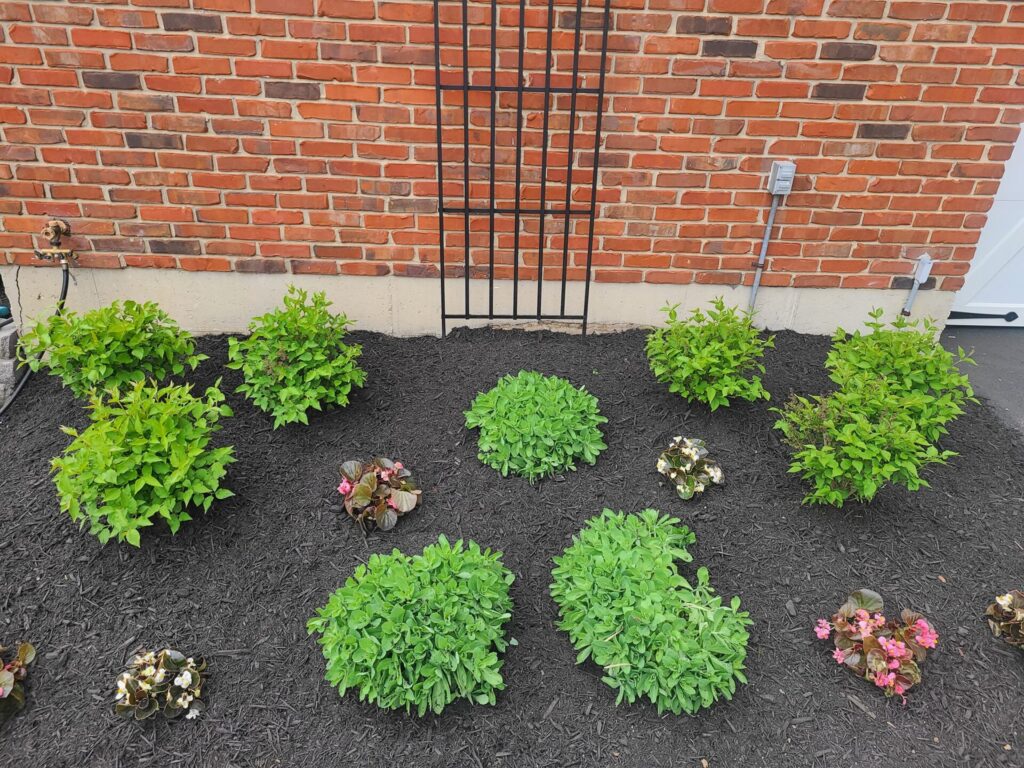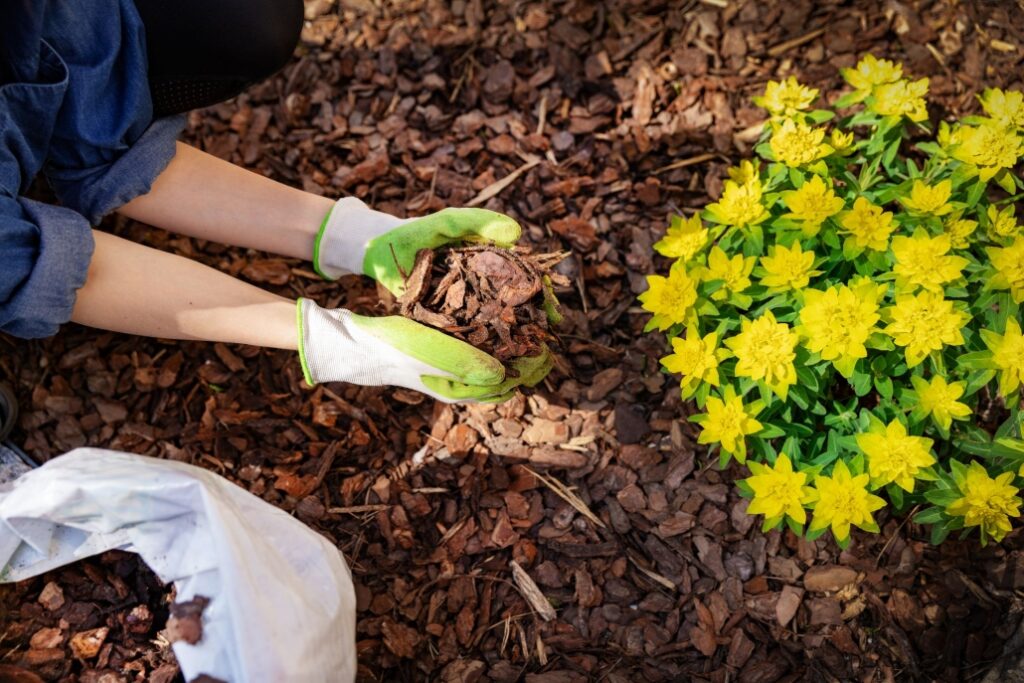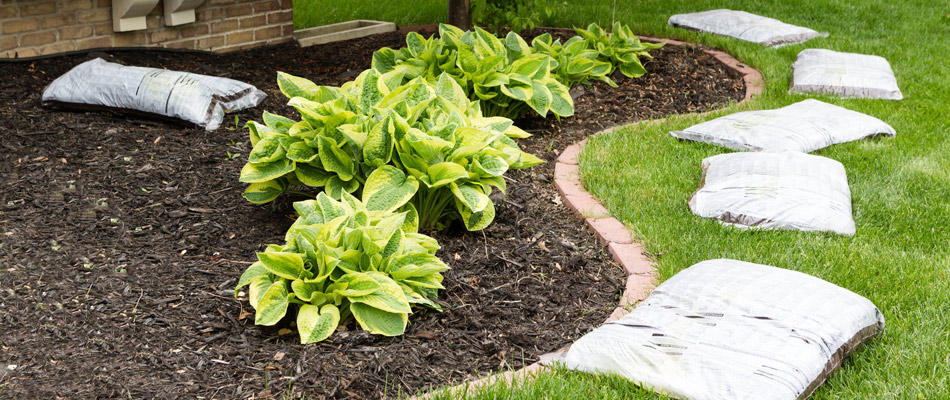Mulching is a simple yet effective gardening technique that can significantly improve the health and appearance of your landscape beds. Whether you are a seasoned gardener or a beginner, adding mulch to your garden beds can enhance the aesthetics, promote plant growth, and reduce maintenance. In this article, we will explore the many benefits of mulching your landscape beds and why it’s an essential step for every garden.


1. Improves Soil Moisture Retention
One of the primary benefits of mulching your landscape beds is its ability to retain moisture in the soil. Mulch acts as a protective barrier, reducing the evaporation rate of water from the soil. This is particularly important during the hot summer months when water can quickly evaporate, leaving plants vulnerable to drought stress. By maintaining consistent moisture levels, mulch helps ensure your plants remain hydrated, promoting healthier growth and reducing the need for frequent watering.
2. Reduces Weed Growth
Weeds can be a major nuisance in any garden, competing with your plants for valuable nutrients and space. Mulching helps to suppress weed growth by blocking sunlight and preventing weed seeds from germinating. This natural weed barrier reduces the amount of weeding you have to do, saving you time and effort while keeping your landscape beds neat and tidy. Organic mulches, such as wood chips, bark, or straw, are especially effective in minimizing weed growth.
3. Regulates Soil Temperature
Mulch helps to regulate soil temperature by insulating the soil from extreme fluctuations in temperature. During hot weather, it keeps the soil cool by providing a layer of protection against the scorching sun. In colder months, mulch acts as an insulator, protecting plant roots from freezing temperatures. By stabilizing the temperature around the root zone, mulch ensures that plants have a favorable environment for growth throughout the year.
4. Enhances Soil Fertility
Organic mulches, such as shredded leaves, grass clippings, and compost, break down over time, enriching the soil with valuable nutrients. As they decompose, these organic materials release essential minerals and organic matter into the soil, improving soil structure and fertility. The decomposition process also encourages beneficial microorganisms that enhance soil health, making it easier for plants to absorb nutrients. By adding mulch to your landscape beds, you are essentially giving your soil a natural boost.
5. Prevents Soil Erosion
Soil erosion is a significant concern, particularly in areas with heavy rainfall or on sloped landscapes. Mulch helps to prevent soil erosion by protecting the soil from the impact of rain and wind. The mulch layer absorbs water, allowing it to penetrate the soil more effectively and reducing surface runoff. This helps to prevent the loss of topsoil and maintain the integrity of your landscape beds. Mulch is an excellent solution for protecting your garden and preventing long-term damage caused by erosion.
6. Improves Aesthetic Appeal
Mulch not only benefits your plants but also enhances the visual appeal of your garden. A fresh layer of mulch provides a clean, polished look that complements the natural beauty of your flowers, shrubs, and trees. Mulch comes in a variety of colors and textures, so you can choose one that best suits your landscape design. Whether you prefer the rich, earthy tones of bark mulch or the bright, vibrant hues of colored mulch, a well-mulched landscape bed adds a professional, finished appearance to your garden.
7. Reduces the Need for Fertilizers
By improving soil fertility and encouraging beneficial soil organisms, mulch can reduce the need for chemical fertilizers. As organic mulch breaks down, it releases nutrients slowly, providing a steady supply of food to your plants over time. This can help reduce your reliance on synthetic fertilizers, which can be harmful to the environment. Additionally, mulching helps to maintain a more balanced pH level in the soil, promoting healthy plant growth without the need for excessive chemical inputs.
8. Protects Plant Roots from Damage
Mulch acts as a protective layer for plant roots, shielding them from physical damage caused by gardening tools, foot traffic, or other external factors. It also prevents the soil from compacting, ensuring that roots can grow and spread freely. Mulch can also help keep the soil loose and aerated, allowing roots to access oxygen and nutrients more easily.
9. Saves Time on Garden Maintenance
Mulching significantly reduces the time you spend on garden maintenance tasks. By suppressing weeds, reducing watering needs, and improving soil structure, mulch minimizes the amount of time and effort required to maintain your landscape beds. Additionally, mulching helps prevent the spread of diseases by reducing soil splashing, which can introduce harmful pathogens to plant roots.
Conclusion
Mulching your landscape beds is an investment in the health and longevity of your garden. From conserving water and reducing weeds to improving soil fertility and enhancing visual appeal, the benefits of mulching are numerous. Whether you choose organic or inorganic mulch, the right mulch for your garden can make a world of difference. So, make sure to add a layer of mulch to your landscape beds and enjoy the many advantages it offers to your plants and garden.
Remember, regular mulching can ensure that your landscape beds stay healthy, vibrant, and low-maintenance throughout the year. If you haven’t mulched your garden beds yet, now is the perfect time to start!


